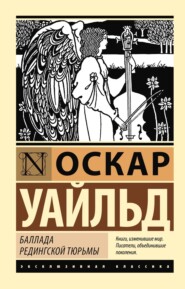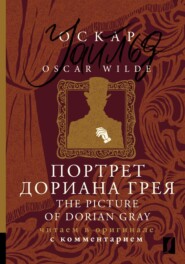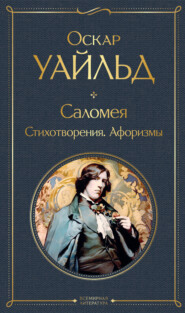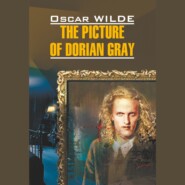По всем вопросам обращайтесь на: info@litportal.ru
(©) 2003-2024.
✖
Miscellaneous Aphorisms; The Soul of Man
Настройки чтения
Размер шрифта
Высота строк
Поля
To get into the best society nowadays one has either to feed people, amuse people, or shock people – that is all.
You should never try to understand women. Women are pictures, men are problems. If you want to know what a woman really means – which, by the way, is always a dangerous thing to do – look at her, don't listen to her.
Ordinary women never appeal to one's imagination. They are limited to their century. No glamour ever transfigures them. One knows their minds as easily as one knows their bonnets. One can always find them. There is no mystery in any of them. They ride in the park in the morning and chatter at tea parties in the afternoon. They have their stereotyped smile and their fashionable mauve.
Don't run down dyed hair and painted faces. There is an extraordinary charm in them – sometimes.
To have been well brought up is a great drawback nowadays. It shuts one out from so much.
The people who have adored me – there have not been very many, but there have been some – have always insisted on living on long after I had ceased to care for them or they to care for me. They have become stout and tedious, and when I meet them they go in at once for reminiscences. That awful memory of women! What a fearful thing it is! And what an utter intellectual stagnation it reveals!
Examinations are pure humbug from beginning to end. If a man is a gentleman he knows quite enough, and if he is not a gentleman whatever he knows is bad for him.
Credit is the capital of a younger son, and he can live charmingly on it.
The object of art is not simply truth but complex beauty. Art itself is really a form of exaggeration, and selection, which is the very spirit of art, is nothing more than an intensified mode of over-emphasis.
The popular cry of our time is: 'Let us return to Life and Nature, they will recreate Art for us and send the red blood coursing through her veins; they will shoe her feet with swiftness and make her hand strong.' But, alas! we are mistaken in our amiable and well-meant efforts. Nature is always behind the age. And as for life, she is the solvent that breaks up Art, the enemy that lays waste her house.
There are only two kinds of women – the plain and the coloured. The plain women are very useful. If you want to gain a reputation for respectability you have merely to take them down to supper. The other women are very charming. They commit one mistake, however – they paint in order to try and look young.
The way of paradoxes is the way of truth. To test reality we must see it on the tight-rope. When the verities become acrobats we can judge them.
Life imitates art far more than art imitates life… The Greeks with their quick, artistic instinct understood this, and set in the bride's chamber the statue of Hermes or of Apollo, that she might bear children as lovely as the works of art that she looked at in her rapture or her pain. They knew that life gains from art not merely spirituality, depth of thought and feeling, soul-turmoil or soul-peace, but that she can form herself on the very lines and colours of art, and can reproduce the dignity of Pheidias as well as the grace of Praxiteles. Hence came this objection to realism. They disliked it on purely social grounds. They felt that it inevitably makes people ugly, and they were perfectly right.
Faithfulness is to the emotional life what consistency is to the life of the intellect – simply a confession of failure.
There are many things that we would throw away if we were not afraid that others might pick them up.
What a fuss people make about fidelity! Why, even in love it is purely a question for physiology. It has nothing to do with our own will. Young men want to be faithful and are not; old men want to be faithless and cannot – that is all one can say.
Modernity of form and modernity of subject-matter are entirely and absolutely wrong. We have mistaken the common livery of the age for the vesture of the muses, and spent our days in the sordid streets and hideous suburbs of our vile cities when we should be out on the hillside with Apollo. Certainly we are a degraded race, and have sold our birthright for a mess of facts.
Nothing can cure the soul but the senses, just as nothing can cure the senses but the soul.
I can stand brute force, but brute reason is quite unbearable. There is something unfair about its use. It is hitting below the intellect.
Those who live in marble or on painted panel know of life but a single exquisite instant, eternal, indeed, in its beauty but limited to one note of passion or one mood of calm. Those whom the poet makes live have their myriad emotions of joy and terror, of courage and despair, of pleasure and of suffering. The seasons come and go in glad or saddening pageant, and with winged or leaden feet the years pass by before them. They have their youth and their manhood, they are children, and they grow old. It is always dawn for St Helena as Veronese saw her at the window. Through the still morning air the angels bring her the symbol of God's pain. The cool breezes of the morning lift the gilt threads from her brow. On that little hill by the city of Florence, where the lovers of Giorgione are lying, it is always the solstice of noon – of noon made so languorous by summer suns that hardly can the slim, naked girl dip into the marble tank the round bubble of clear glass, and the long fingers of the lute player rest idly upon the chords. It is twilight always for the dancing nymphs whom Corot set free among the silver poplars of France. In eternal twilight they move, those frail, diaphanous figures, whose tremulous, white feet seem not to touch the dew-drenched grass they tread on. But those who walk in epos, drama, or romance see through the labouring months the young moons wax and wane, and watch the night from evening into morning star, and from sunrise into sun-setting can note the shifting day with all its gold and shadow. For them, as for us, the flowers bloom and wither, and the earth, that green-tressed goddess, as Coleridge calls her, alters her raiment for their pleasure. The statue is concentrated to one moment of perfection. The image stained upon the canvas possesses no spiritual element of growth or change. If they know nothing of death it is because they know little of life, for the secrets of life and death belong to those, and to those only, whom the sequence of time affects, and who possess not merely the present but the future, and can rise or fall from a past of glory or of shame. Movement, that problem of the visible arts, can be truly realised by literature alone. It is literature that shows us the body in its swiftness and the soul in its unrest.
Behind every exquisite thing that exists there is something tragic. Worlds have to be in travail that the merest flower may blow.
Beauty is a form of genius – is higher, indeed, than genius, as it needs no explanation. It is one of the great facts of the world, like sunlight, or spring-time, or the reflection in dark water of that silver shell we call the moon. It cannot be questioned, it has its divine right of sovereignty.
The only way to get rid of a temptation is to yield to it. Resist it and your soul grows sick with longing for the things it has forbidden to itself.
Women spoil every romance by trying to make it last for ever.
He's sure to be a wonderful success. He thinks like a Tory and talks like a Radical, and that's so important nowadays.
Nowadays to be intelligible is to be found out.
We make gods of men and they leave us. Others make brutes of them and they fawn and are faithful.
The husbands of very beautiful women belong to the criminal classes.
To me beauty is the Wonder of wonders. It is only shallow people who do not judge by appearances.
The true mystery of the world is the visible, not the invisible.
The thoroughly well-informed man is the modern ideal. And the mind of the thoroughly well-informed man is a dreadful thing. It is like a bric-a-brac shop, all monsters and dust, with everything priced above its proper value.
Women have no appreciation of good looks in men – at least good women have none.
To influence a person is to give him one's own soul. He does not think his natural thoughts or burn with his natural passions. His virtues are not real to him. His sins, if there are such things as sins, are borrowed. He becomes an echo of someone else's music, an actor of a part that has not been written for him.
Those who are faithful know only the trivial side of love; it is the faithless who know love's tragedies.
An artist should create beautiful things, but should put nothing of his own life into them. We live in an age when men treat art as if it were meant to be a form of autobiography. We have lost the abstract sense of beauty.
A man cannot be too careful in the choice of his enemies. I have not got one who is a fool. They are all men of some intellectual power, and consequently they all appreciate me.
The value of an idea has nothing whatever to do with the sincerity of the man who expresses it.
I like persons better than principles, and I like persons with no principles better than anything else in the world.
He who would lead a Christ-like life is he who is perfectly and absolutely himself. He may be a great poet, or a great man of science; or a young student at the university, or one who watches sheep upon a moor; or a maker of dramas, like Shakespeare, or a thinker about God, like Spinoza; or a child who plays in a garden, or a fisherman who throws his nets into the sea. It does not matter what he is as long as he realises the perfection of the soul that is within him.
The aim of life is self-development. To realise one's nature perfectly – that is what each of us is here for.
There is no such thing as a good influence. All influence is immoral – immoral from the scientific point of view.
Words have not merely music as sweet as that of viol and lute, colour as rich and vivid as any that makes lovely for us the canvas of the Venetian or the Spaniard, and plastic form no less sure and certain than that which reveals itself in marble or in bronze, but thought and passion and spirituality are theirs also – are theirs, indeed, alone.
There is nothing so absolutely pathetic as a really fine paradox. The pun is the clown among jokes, the well-turned paradox is the polished comedian, and the highest comedy verges upon tragedy, just as the keenest edge of tragedy is often tempered by a subtle humour. Our minds are shot with moods as a fabric is shot with colours, and our moods often seem inappropriate. Everything that is true is inappropriate.
The longer one studies life and literature the more strongly one feels that behind everything that is wonderful stands the individual, and that it is not the moment that makes the man but the man who creates the age.
To know the vintage and quality of a wine one need not drink the whole cask.
It is a sad thing to think of, but there is no doubt that genius lasts longer than beauty. That accounts for the fact that we all take such pains to over-educate ourselves.
The ugly and the stupid have the best of it in this world. They can sit at their ease and gape at the play. If they know nothing of victory they are at least spared the knowledge of defeat.
To have a capacity for a passion, and not to realise it is to make oneself incomplete and limited.
Even in actual life egotism is not without its attractions. When people talk to us about others they are usually dull. When they talk to us about themselves they are nearly always interesting, and if one could shut them up when they become wearisome as easily as one can shut up a book of which one has grown wearied they would be perfect absolutely.
Every great man nowadays has his disciples and it is invariably Judas who writes the biography.

















